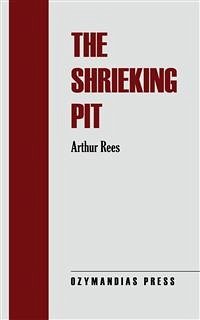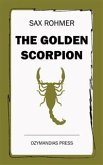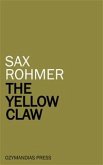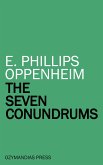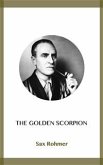Colwyn had never seen anything quite so eccentric in a public room as the behaviour of the young man breakfasting alone at the alcove table in the bay embrasure, and he became so absorbed in watching him that he permitted his own meal to grow cold, impatiently waving away the waiter who sought with obtrusive obsequiousness to recall his wandering attention by thrusting the menu card before him. To outward seeming the occupant of the alcove table was a good-looking young man, whose clear blue eyes, tanned skin and well-knit frame indicated the truly national product of common sense, cold water, and out-of-door pursuits; of a wholesomely English if not markedly intellectual type, pleasant to look at, and unmistakably of good birth and breeding. When a young man of this description, your fellow guest at a fashionable seaside hotel, who had been in the habit of giving you a courteous nod on his morning journey across the archipelago of snowy-topped tables under the convoy of the head waiter to his own table, comes in to breakfast with shaking hands, flushed face, and passes your table with unseeing eyes, you would probably conclude that he was under the influence of liquor, and in your English way you would severely blame him, not so much for the moral turpitude involved in his excess as for the bad taste, which prompted him to show himself in public in such a condition. If, on reaching his place, the young man's conduct took the additional extravagant form of picking up a table-knife and sticking it into the table in front of him, you would probably enlarge your previous conclusion by admitting the hypotheses of drugs or dementia to account for such remarkable behaviour. All these things were done by the young man at the alcove table in the breakfast room of the Grand Hotel, Durrington, on an October morning in the year 1916; but Colwyn, who was only half an Englishman, and, moreover, had an original mind, did not attribute them to drink, morphia, or madness. Colwyn flattered himself that he knew the outward signs of these diseases too well to be deceived into thinking that the splendid specimen of young physical manhood at the far table was the victim of any of them. His own impression was that it was a case of shell-shock. It was true that, apart from the doubtful evidence of a bronzed skin and upright frame, there was nothing about him to suggest that he had been a soldier: no service lapel or regimental badge in his grey Norfolk jacket. But an Englishman of his class would be hardly likely to wear either once he had left the Army. It was almost certain that he must have seen service in the war, and by no means improbable that he had been bowled over by shell-shock, like many thousands more of equally splendid specimens of young manhood. Any other conclusion to account for the strange condition of a young man like him seemed unworthy and repellent...
Bitte wählen Sie Ihr Anliegen aus.
Rechnungen
Retourenschein anfordern
Bestellstatus
Storno

